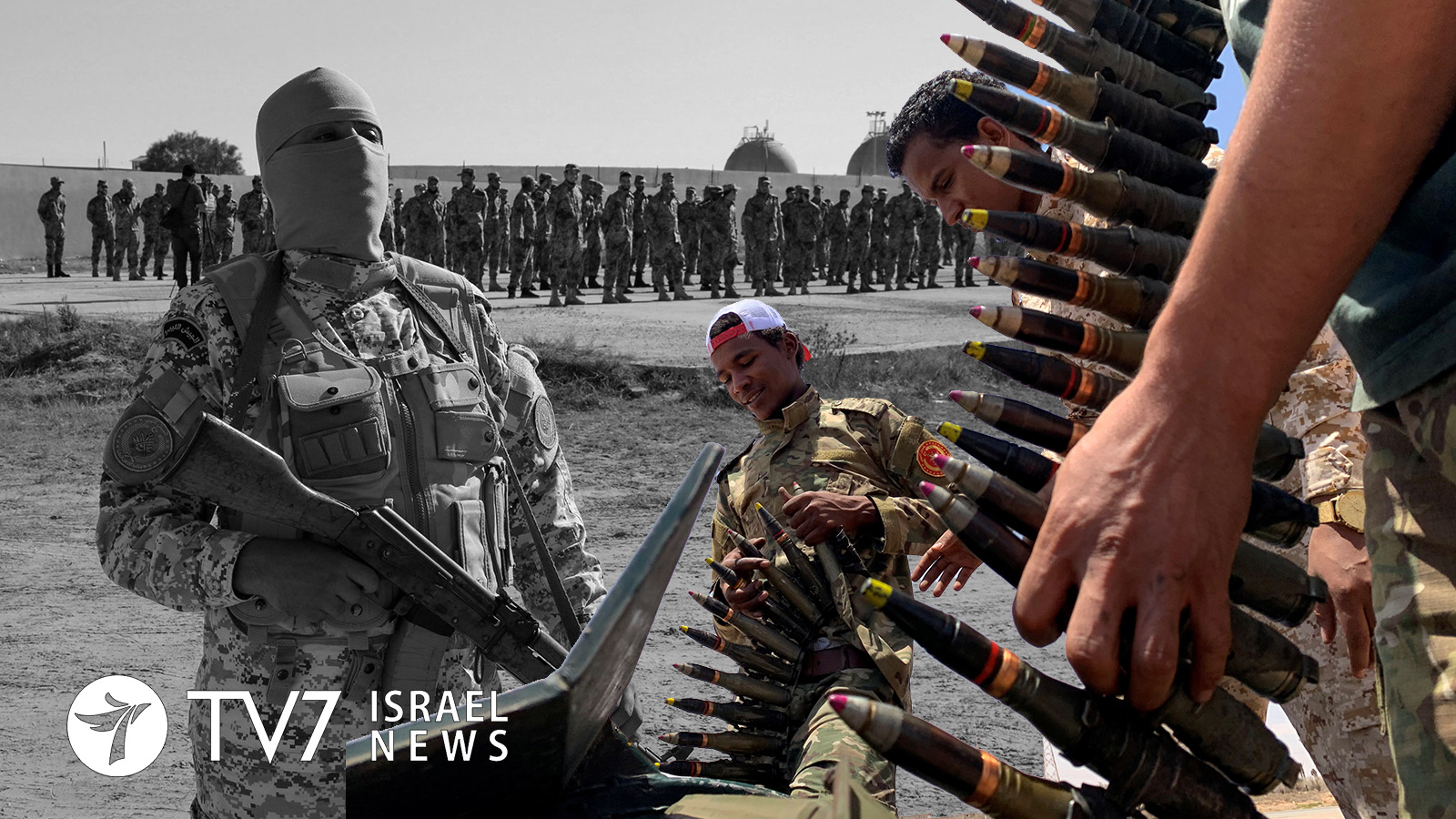Egyptian Foreign Minister Sameh Shoukry emphasized that while Cairo seeks to realize a political solution to all regional conflicts including those in Syria and Libya, that his nation will act to preserve its own national security interests.
Following a bilateral meeting with his Saudi Arabian counterpart Prince Faisal Bin Farhan, the Egyptian top diplomat seized the opportunity to signal to regional rival Turkey that its growing involvement in neighboring Libya will not be accepted.
“We seek, for all matters, be it Syria or Libya, political solutions. But at the same time, Egypt has its own interests. Egypt has been targeted, and its people have been targeted by terrorist organizations that have made their way into Egypt due to the complicated situation in Libya. As such, Egypt will defend its interests and will continue to support the political path. But it (Egypt) will not accept, in any way, any violation or breach of the lines that have been drawn, in defense of our national interests and Egypt’s national security,” said Minister Shoukry.
The veiled threat by the Egyptian top diplomat was directed at the Tripoli-based Libyan Government of National Accord (GNA) and its Turkish patrons, and comes just a week after the Egyptian Parliament gave President Abdel-Fattah al-Sisi the green light for possible military intervention in Libya by approving the deployment of armed forces abroad to fight “terrorist groups and militias.”
Meanwhile, at the same press conference, Saudi Foreign Minister Bin Farhan pledged support to Egypt vis-à-vis Libya. “I have emphasized to his excellency the Minister (Shoukry) the Kingdom’s full support to the Egyptian position, and its support for the Cairo Declaration, as well as the Kingdom’s standing position for the political solution to the Libyan situation through peaceful, political discussion, ceasefire, and the respect of Egyptian national security. (We have also discussed) the importance of pushing away foreign intervention in Libya, in all its forms,” said the top Saudi diplomat.
It is important to explain that while Turkey supports the GNA under Fayez al-Sarraj; Egypt, Russia, the United Arab Emirates and Saudi Arabia – among others – support the Eastern-based Libyan National Army (LNA) under the command of Gen. Khalifa Haftar.
Even though the LNA managed to engulf the city of Tripoli earlier this year after a successful offensive of about ten months, the tables turned when Turkey proactively engaged in bolstering the Tripoli government with advanced weaponry and mercenaries to preserve its own national security interests.
These referred-to interests pertain specifically to a maritime accord between Ankara and Tripoli that effectively provides Turkey legal ground for offshore exploration rights of natural resources – despite vocal European objections that dismiss the accord as null and void, since Turkey and Libya blatantly “ignored the fact that between the two countries there is the large geographical land mass of Crete,” which is sovereign Greek territory.
Heightening tensions between Europe and Turkey over this dispute peaked 10 June when the Turkish Gokova frigate essentially threatened the French Courbet vessel, as the latter sought to inspect a civilian ship suspected of transporting banned-weapons from Turkey to Libya. While the incident naturally infuriated France, which acted as part of an UN-backed mission to impose an arms embargo on Libya; Turkey insists that the naval mission, dubbed IRINI, did not have the legal rights to board the civilian vessel and further accuses the mission itself of being bias in support of general Haftar.
Turkish Foreign Minister Mevlut Cavusoglu insisted that many sides may deem “Operation IRINI good, but when we look at the practices in the field, it is definitely biased, supports Haftar, and punishes the Libyan government.”
In light of the naval incident, alongside other perceived provocations by Turkey against European states Greece and Cyprus, French President Emmanuel Macron called upon the European Union to take concrete steps against Ankara. “In this part of the Mediterranean, which is vital for all our countries, energy and security issues are essential. What’s at stake is a power struggle, in particular of Turkey and Russia, who are asserting themselves more and more and in the face of which the EU is still doing too little. It would be a serious mistake to leave our security in the Mediterranean in the hands of other actors,” said the French leader.
Speaking alongside his Cypriot counterpart Nicos Anastasiades, Macron went on to voice “the total support France offers to Cyprus, and to Greece too, in the face of violations of their sovereignty by Turkey. It is not acceptable for the maritime space of a member state of our union to be violated or threatened. Those who are responsible must be sanctioned and you know you can count on the support of France on this matter. Europe must protect its sovereignty with determination.”
The French position is not alone within Europe. German Foreign Minister Heiko Maas warned Turkey last week that unless it stops with its provocations in the eastern Mediterranean, EU-Turkey relations would not be possible.
“International law must be upheld and that is why progress in EU-Turkey relations will only be possible if Ankara stops provocations in the eastern Mediterranean. At the same time, we see the need within the European Union for dialogue with Turkey given that Turkey is an important strategic partner when it comes to NATO and migration policies. That is why there can’t be any honest dialogue with Turkey if we can’t tell Turkey they have to deliver when it comes to all the unanswered questions, especially concerning the eastern Mediterranean,” cautioned Berlin’s top diplomat.
